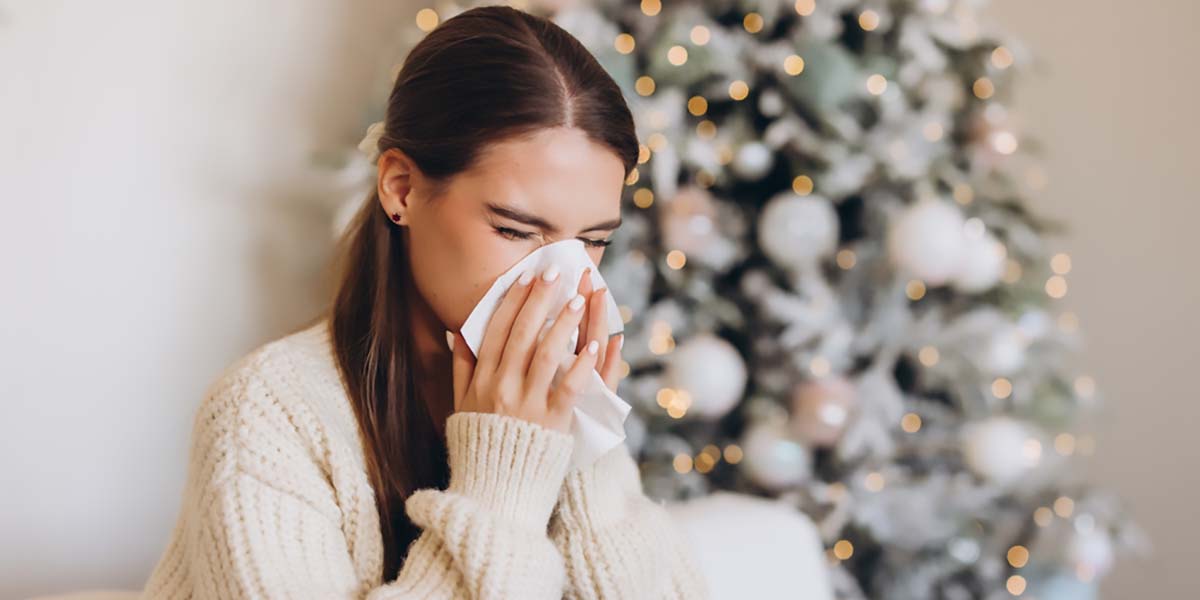Are your allergy symptoms flaring up in late summer and early fall? If so, ragweed…

Spring Allergy Forecast for 2022!!
Itchy eyes, sneezing, runny nose, and nasal congestion are all hallmarks of spring allergy symptoms. If it seems like allergy symptoms are getting worse each spring, you aren’t imagining it because approximately one in five people suffer from seasonal allergies, and those numbers are on the rise.
Climate change is thought to be playing a contributing role in the rising incidence of seasonal allergies. It has taken a particularly high toll throughout the Delaware Valley.
When is spring allergy season in Philly?
- Tree pollen season for the Philadelphia region runs March through May.
- It’s starting earlier and lasting longer, and becoming the new normal.
- People who are not typically prone to seasonal allergies should prepare that they may get symptoms: may experience itching eyes and nasal irritation due to high pollen count
Is climate change making the spring allergy season worse?
- Yes! The combination of warmer sustained temperatures and higher humidity lead to longer growing seasons and increased pollen levels. The result is a longer allergy season.
- Higher carbon dioxide coupled with air pollutants can amplify and exacerbate allergy symptoms.
- Higher humidity and more rainfall will also drive up mold levels, another allergic trigger.
What strategies can help us cope?
- Start treatment early: If you typically follow a treatment that includes over-the-counter or doctor-prescribed antihistamine medications, start taking them about two weeks prior to anticipated onset of symptoms. That’s when they do the most good to help prevent inflammation.
- Avoid the outside triggers: Stay indoors when pollen peaks, keep windows closed, eye protection outside, rinse off in the shower, wash clothes, wear a mask.
- Address the inside triggers: thoroughly dusting, vacuuming and washing surfaces and materials to remove dust and pollen that may have already penetrated your home. Identify and clean potential sources of mold. Change air filters: and consider using a HEPA air filter at home or at work.
- Treat: A number of prescription and over-the-counter medications can help. Use of medications should only be used as directed by prescribing information or as directed by your doctor.
- Non-drowsy antihistamines are the first line of defense: loratadine, cetirizine, fexofenadine, and levocetirzine are all examples
- Corticosteroid nasal sprays can also be used: any fluticasone nasal spray, budesonide nasal spray, or triamcinolone nasal spray
- Decongestants are helpful for nasal congestion, but side effects are common
- See us at Chestnut Hill Allergy & Asthma Associates: When avoidance and over-the-counter medications are not helping to manage allergy symptoms:
- Testing can determine what you are allergic to in order to avoid specific triggers and help determine treatments that are likely to work
- For some, immunotherapy can be a good option. Immunotherapy reduces immune system reactions and symptoms. Guided by a board-certified allergist, immunotherapy helps desensitize people to specific allergens by retraining the immune system to tolerate those allergens.
- More serious allergy indications include asthma symptoms such as coughing, wheezing, and shortness of breath
With everyone nervous about COVID, how can we tell the difference between allergy and COVID symptoms?
- If allergies:
- You should not be experiencing fever, body aches or chills
- A runny nose will only run clear, not discolored
- Itchy eyes are a symptom of allergies
- Symptoms typically last throughout the season and similar symptoms appear around the same time every year
- Symptoms may come and go throughout the day
- Allergy symptoms improve with treatment
- Symptoms are worse outside/better inside.
Symptoms that may be present with COVID-19 that are not typical of seasonal allergies include persistent dry cough, fever, achy muscles, severe fatigue, nausea, vomiting, and diarrhea. COVID-19 symptoms do not improve with antihistamines, allergies do.
If you are unsure, consult with your primary doctor or allergist.



